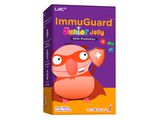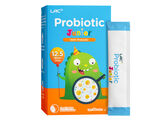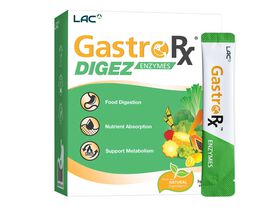Dealing with Hand, Food and Mouth Disease (HFMD)

Here are 7 useful tips to protect your child against HFMD.
Hand, Foot, and Mouth Disease (HFMD) is a viral infection caused by enteroviruses. It’s most seen in children below the age of 10 and often those under 5, due to their less developed immune system compared to adults.[1]
The typical time frame from initial contact to the onset of symptoms is around three to seven days. The main manifestations of HFMD are fever, sore throat and rashes on hand, feet, buttocks, and oral ulcers, where children may experience loss of appetite due to painful swallowing. Most patients take 7 to 10 days to recover from HFMD on their own as there is no specific treatment for it.[2]
How does it spread?
- Physical contact such as hugging and kissing
- Sharing personal items such as utensils, water bottles and books
- In contact with contaminated surface such as toys, play mats and fabrics
- Breathing in air droplets of the infected person especially when the person sneezes or coughs.
HFMD is common but highly contagious and tends to spread most easily in places with lots of young children, such as schools, kindergartens, and daycare centers. In order to reduce the risk of HFMD infection, parents are urged to adapt the following precautions:
Regular hand washing. Children are very sociable and mobile. In addition, they usually do not practice proper hand hygiene and frequently touch their face and mouth. Therefore, it is important to teach your child to wash hands with soap frequently and thoroughly for at least 20 seconds, especially before and after meal, after using the washroom and after coming home from outside. You may use alcohol-based hand sanitizer or hand wipes if you are outside where soap and water are not available.
Practice good personal hygiene. Besides hand washing, teach your children not to put any toys, other objects, or their fingers in their mouth. Remind them to avoid touching or rubbing eyes, nose, and mouth with unwashed hands. It is also good to avoid sharing food, drinks, utensils, clothes, toys, towels, and toothbrushes with others during this time to reduce the risk of HFMD transmission.
Avoid large crowds. It is good to keep your child away from public places such as malls, swimming pools, theme parks and playgrounds during this time as these common facilities are full of contaminated objects.
Mask up. HFMD is transmitted by respiratory droplets containing virus particles. You can be exposed to the virus by breathing in infected air from a sick person’s sneeze, cough or when they are talking. Therefore, it is recommended to wear face masks at all times in public. They give protection and peace of mind, especially to the young ones.
Reduce close contact. In general, adults and teenagers have a milder form of HFMD, and they may transmit the virus to others without knowing they have it. Be sure you are clean before having physical contact such as hugging and kissing your child.
Disinfect your home frequently. Ensure the home is cleaned on a regular basis by using a disinfectant. It is important to clean and disinfect frequently touched surfaces and shared items, including toys, play mats, doorknobs, and furniture to prevent the spread of the virus.
Boost your child’s immunity. If you would like to prevent HFMD and other viral infections as much as possible, these are the things you can do to boost your child’s immune system:
- Adequate hours of sleep. Children need more sleep than adults as they are still in the process of growing. Too little sleep may affect growth and immune system, which keep them from getting sick. Toddlers require 11 -14 hours of sleep per day while preschoolers need 10-13 hours of sleep per day.[3]
- Prepare healthy diet for your little ones. Unbalanced diet or malnutrition can impair the immune system which are essential protection for the body. It is recommended to include fruits, vegetables, fish, chicken, beans, and dairy in your kid’s daily diet. You may also include fermented foods to promote good gut bacterial health, such as yoghurts, tempeh and kefir. Alternatively , you may also consider giving your child dietary supplements with key ingredients such as vitamin C, probiotics, and multivitamins to boost their immunity. Try giving them in the form of powder, liquid or chewable supplements as pills are hard to swallow.
If you suspect that your child has HFMD, seek medical attention immediately. Although HFMD is common in Malaysia due to its humid climate, by taking some useful precautions, we can protect our little ones from getting infected.










